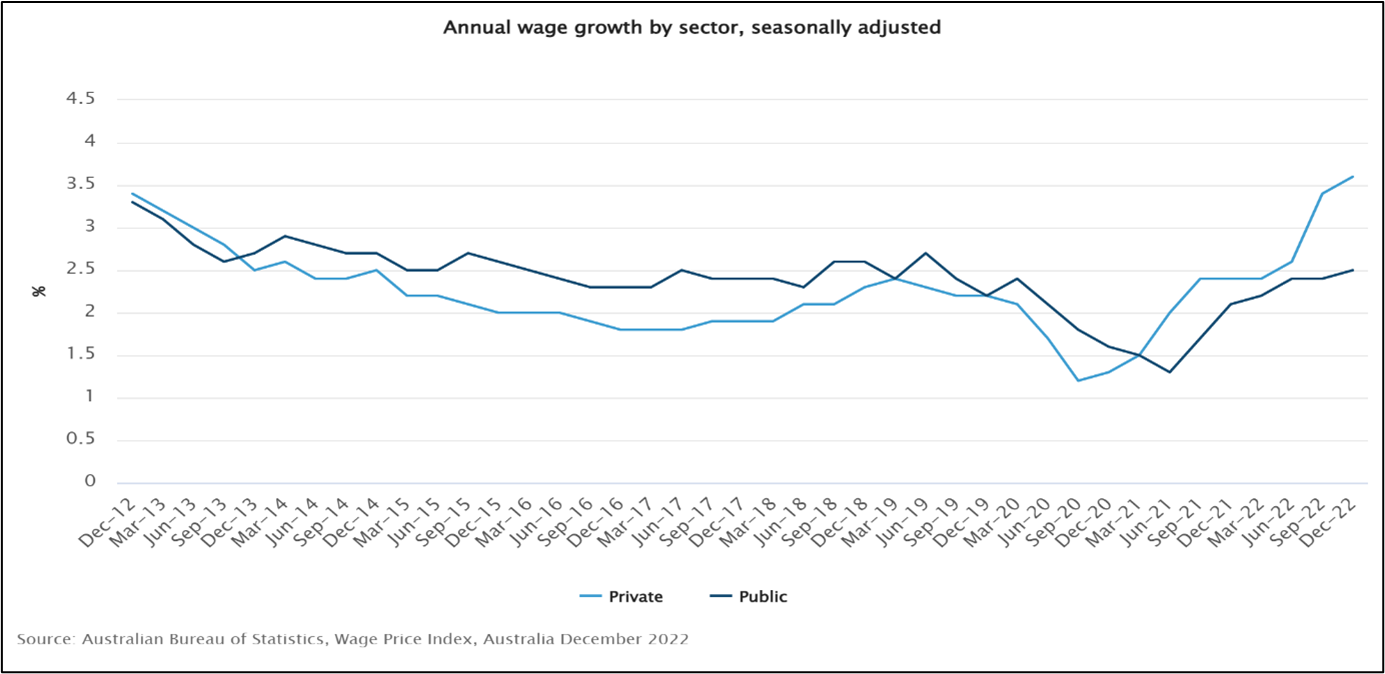Volume Recruitment with Scaleup > Scaleup by Hudson Blog > The Frodo Baggins check:
Why focusing on candidate care will become your point of difference in a shifting graduate recruitment landscape
If you’ve ever watched/read The Lord of the Rings series, you know all about the epic pilgrimage poor Frodo endured. It was tiring just watching it; the endless hurdles, mysterious and unnerving experiences, and consistent feelings of uncertainty and hardship.
So why does this epic saga also read like many applicants' reviews of graduate recruitment processes on Whirlpool!?
The war for graduate talent has never been fiercer. In the past, companies in the private sector may have been able to rely on their brand name or reputation to woo the best graduates, while organisations in the public sector could rely on the fact that they offer more meaningful work and greater employment benefits.
But the graduate recruitment landscape has changed dramatically, and today it’s the candidates who hold the upper hand.
While the battle between the public and private sector rages on – particularly when it comes to attracting top graduate talent – the private sector is clearly dominating. Why? Simply because they run a much faster (the efficacy of this is another debate for another time!) graduate recruitment process, along with the fact that they offer more attractive entry-level salaries.

Today, providing an exceptional approach to candidate care is the only way organisations in the public sector will stand a chance of attracting A-grade talent, and then more importantly, retaining them throughout their graduate recruitment process.
After all, following a negative experience, candidates will simply self-eject and look for another opportunity elsewhere.
You don’t want to drive the best graduate talent away. Remember that with just 280 characters and a push of a button, if you have created a negative candidate experience, the world will know about it immediately, and your reputation as an employer-of-choice can be tarnished. Similarly, a lack of communication can be just as damaging, if not more so.
Candidate care is an essential element of the graduate recruitment process, encompassing the ways in which your organisation interacts with potential candidates and how you ensure that the candidates’ experience is as positive as possible.
When all is said and done, providing a first-class level of candidate care will typically lead to a more successful graduate recruitment process, higher retention rates, and increased employer brand awareness. By contrast, a lack of candidate care will damage your brand reputation, resulting in lower acceptance and retention rates.
The term candidate experience refers to the way in which graduates perceive their interactions with your organisation as they move through the recruitment process. Interestingly, research shows that over 60% of graduates would reject an offer from an organisation that demonstrated a lack of candidate care, even if the salary was above market rate.
Candidate care needs to be a priority, even in any graduate recruitment process. You simply can’t afford to let it feel like a ‘churn and burn’ or a ‘bums on seats’ type of cattle call.
There’s no denying that the graduate recruitment process can be lengthy, involving multiple stages, including online applications, assessment centres, a few rounds of interviews, personality assessments, and offer and acceptance stages. Organisations (both in the private and public sectors) need to ensure that they keep their candidates engaged throughout each stage of the process, providing them with timely and clear communication, feedback, and support. They should also strive to make the experience as smooth, enjoyable, and as personalised as possible.
Ensure your application process is intuitive: Even the best candidates won’t complete a complicated application and will self-eject if it’s simply all too much. RIP written applications (and good riddance!).
Make the candidate feel important: Candidates aren’t mindreaders, and they genuinely want to be given as much information as possible at every stage of the process. A candidate will never accuse you of over-communicating.
Pro-tip: Conducting an end-to-end Candidate Journey Audit will highlight your critical communication junctures.
Transparency builds trust: Provide candidates with as much information on the process as possible and share your organisation’s reasoning behind each step of the process. Let candidates know what to expect, allowing them to be well prepared. FYI, trust is the foundation of loyalty 😉
Don’t wait too long to provide feedback: Provide candidates with feedback – whether positive or constructive – regardless of the outcome. They will be grateful either way, and more importantly they will respect your level of professionalism. In the end, a positive candidate experience doesn’t always equate to “I got the job”.
Remember that rejecting candidates is part of the recruitment process: Leaving a candidate in the dark because you’re too busy or simply too afraid to let a candidate down is not ideal. Telling a candidate that they have been unsuccessful is something you must do if nothing else to maintain a professional reputation in the market. It also demonstrates you are serious and that you care about what you do.
However, simply keeping candidates engaged throughout the actual recruitment and selection process (particularly when the best graduate talent will typically have many opportunities on the go), is no longer enough.
Given that majority of graduate offers will often be made before the end of July for a program commencement in January of the following year, it can sometimes be 6 – 8 months between the offer and the start-date. And that could follow a 3 – 4-month recruitment process.
The research shows that reneges are at an all-time high. Yes … many graduates will continue to speak to other potential employers and will consider alternative offers even after they have accepted a contract of employment. As I said at the top of this piece, today it’s the candidates who hold the upper hand.
It’s imperative that you also keep your candidates warm and highly engaged from the moment they accept your offer right up to the time they walk into your organisation on day #1.
A signed contract in July doesn’t mean they will show up for work next January.
Communicate regularly and transparently: Provide candidates with regular company updates, ensuring that they are informed of what’s going on inside the organisation. This could be done through sharing videos, blog posts, internal newsletters, or personal calls from HR or the hiring manager from time to time. Best practice would be a monthly touch point between them accepting your offer and start date.
Pro-tip: A 30-second informal ‘day in the life’ from an existing grad, the CEO, or a key SME can have a profound impact. It can be shot off an iPhone in minutes, costing nothing and creating a real and authentic connection with the organisation.
Showcase your organisational culture: It’s important to reinforce your workplace culture during this so-called “limbo period” when the recruitment process is done and dusted, but it’s still a long time before they’re on-boarded. Demonstrate your organisational values, mission, and vision. This can be achieved through social media, video content, or perhaps even inviting them to company social events.
Create a sense of community: Building a relationship with your new grads and making them feel like they are a part of the team well before they actually start is another way to keep them engaged. Consider connecting them with a mentor or a buddy from within the organisation and encourage them to meet informally from time to time ahead of their official start date. You might also want to introduce them to recent grads who can share their experiences along with fellow grads who will be starting at the same time.
Hot-tip: Extremely cost-effective yet impactful strategies for building connection and commitment can include sending a branded lanyard for their future security pass, a personalised notebook to begin their preparation, or a pre-written branded LinkedIn or Instagram post announcing their new career with your organisation.
Don’t rule out fun: Today’s graduate candidates are very accustomed to online interaction, particularly on their smartphones. Consider investing in some online gamification tools or programs which will keep your graduates engaged with minimal human involvement from your end. Online quizzes or pre-induction activities are a great way to ensure connectivity, and you can easily be alerted if a particular individual is disengaging. Live events focussing on solving real-time or emerging organisational challenges also help build engagement whilst potentially providing novel solutions for consideration!
As a graduate employer, you want to regain the upper hand in such a fiercely competitive environment. Don’t just keep your candidates close during the selection process. Today, it’s even more important to keep them highly engaged between the time they’ve accepted your offer and the first day of their career journey that they have chosen to embark on with your organisation.
If you’re feeling anxious that you might be missing out on the best graduate talent, or if you’re keen to undertake a Candidate Journey Audit, or understand how your graduate talent program stacks up to the market via our GP Diagnostic, let's connect!
For graduate and bulk recruitment services, contact:

